Dusting is often seen as annoying, but learning to do it correctly can make a big difference in your home. Regular dusting helps clean indoor air by removing allergens like dust mites, pet dander and pollen. It keeps surfaces free of bacteria, preventing the spread of germs. Dusting also prevents the buildup of dirt that can lead to permanent staining or damage to furniture and other surfaces. Learning the best way to dust helps protect the health and longevity of your home environment.
Use the Right Tools
Using suitable instruments for the job can make a big difference. For example, a damp microfiber cloth or duster easily picks up dust from surfaces like furniture and hardwood floors. It’s also perfect for cleaning window sills, baseboards and other tight spaces.
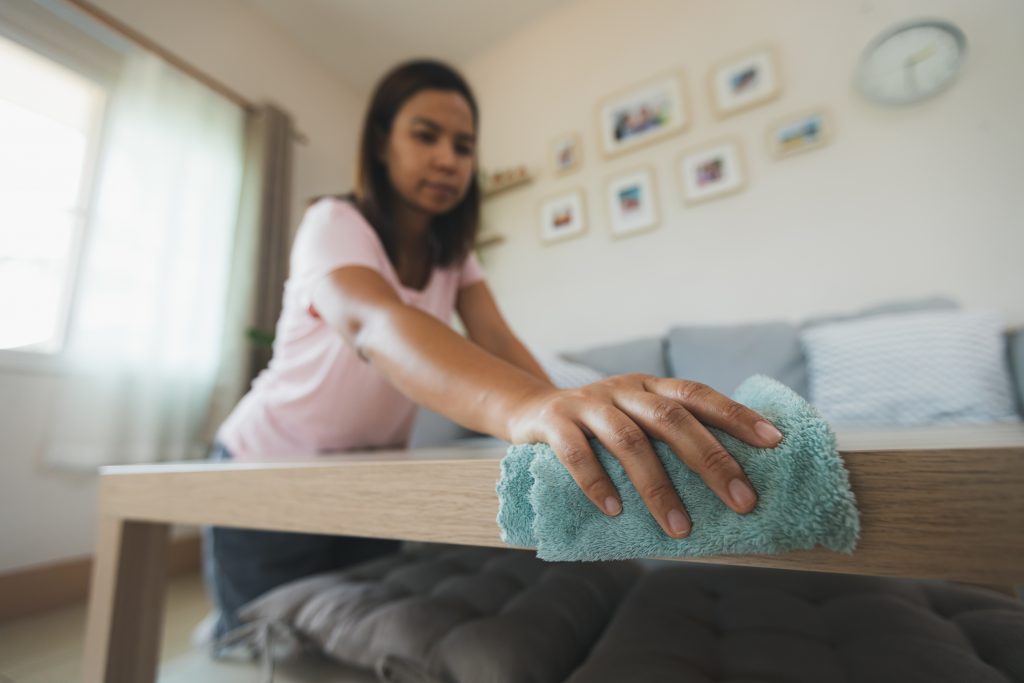
However, for upholstered furniture and larger areas, its best to use a vacuum cleaner with attachments.
A rubber glove can also be a handy tool for removing dust and hair from furniture and carpets. Rub the area with the glove in sweeping motions. Once you’ve finished cleaning, peel off the collected dust from the glove and discard it.
A classic duster is also a great choice, and the best dust busters are great at capturing stubborn particles.
Start Dusting At The Top
Dust accumulates near the ceiling and walls, so it is important to start cleaning from the top and work your way down. By starting from the top, you can work downwards efficiently since it eliminates the need to go back over already-cleaned items later.
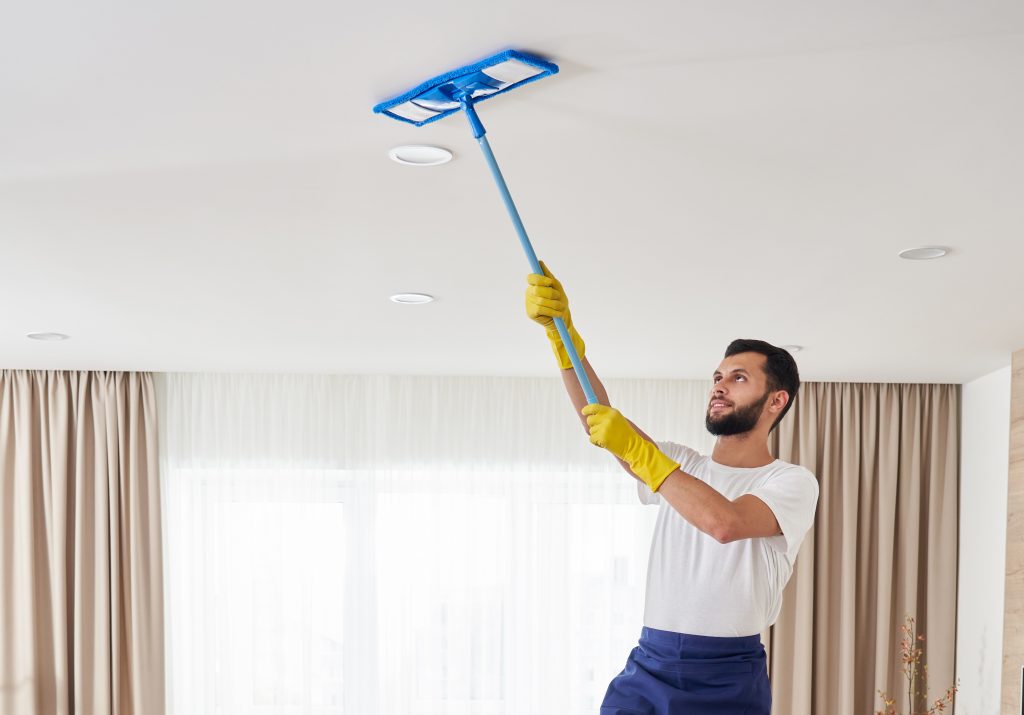
When starting from the top, focus on removing dust and cobwebs from ceilings, high shelves, ceiling fan blades, light fixtures, curtains and other hard-to-reach places. After dusting these areas, you can move onto furniture such as end tables and bookshelves.
Dust All Surfaces
People often forget to dust certain surfaces. For example, areas such as the light fixtures, door frames, window sills and blinds are all prone to accumulating dust but can be easily forgotten.
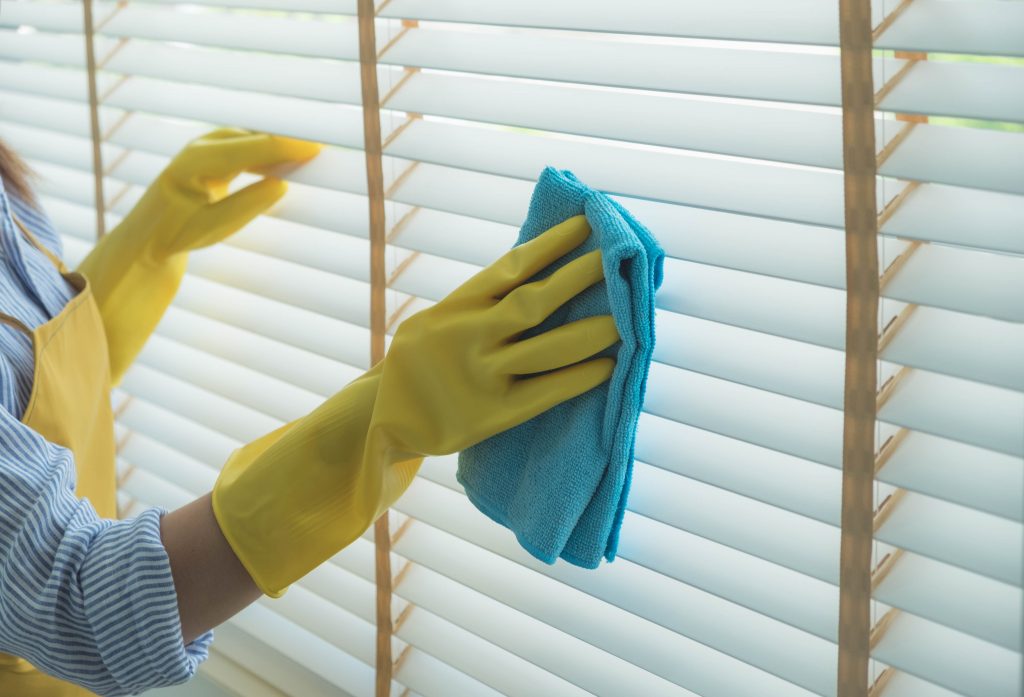
Make sure that you pay special attention to any hard-to-reach spots in your home. Consider using an extendable duster to help get into tricky areas like high shelves and corners. The best dust busters can be helpful in difficult areas, as well.
Also, remember to dust electronics that can easily attract dust, which could cause severe damage if left too long.
Don’t Forget the Floors
After dusting your home, cleaning your floors to remove any remaining dirt or debris is essential. Vacuuming and sweeping to remove dust from carpets, tiled floors and wood surfaces is best. Dust busters can help you clean up areas behind furniture or in tight corners.
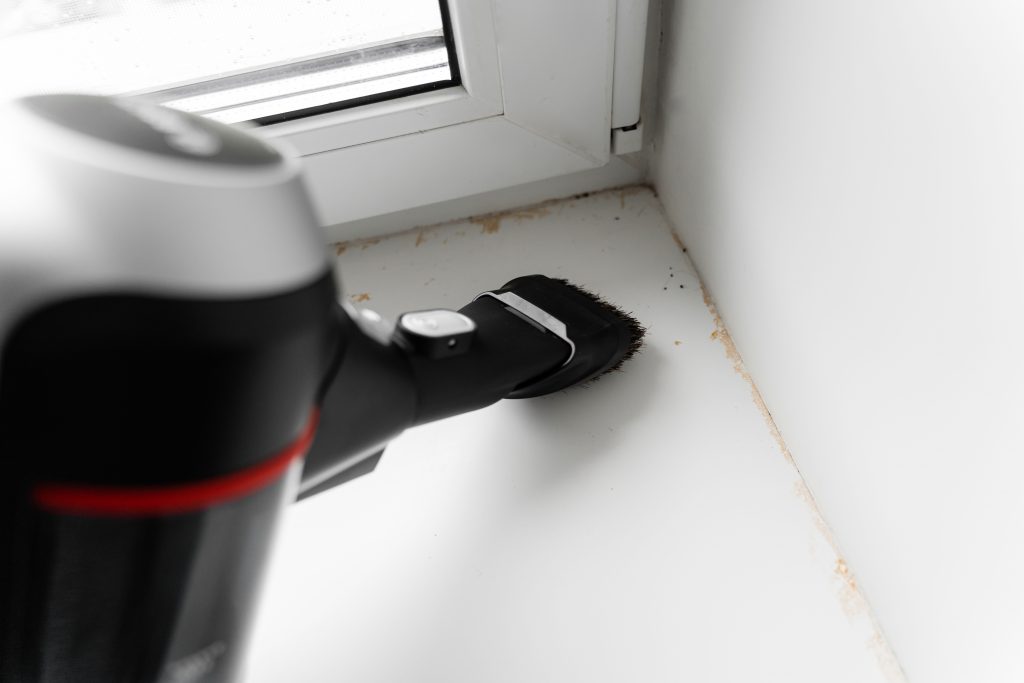
If you have hardwood floors, a microfiber mop is the best way to remove dirt and avoid leaving streaks. Be sure to use warm water with a mild detergent when mopping and replace the water as needed to prevent the dirt from re-depositing onto the floor.
Once everything has dried, use a cloth or duster to go over the floor again and pick up any leftover lint or particles. This will help maintain a healthy environment free of allergens and dust particles.
Keep the Dust at Bay
Dust is an unavoidable part of everyday life. However, there are things you can do to help keep it at bay in your home.
For instance, installing one or two air purifiers in your living space can significantly reduce dust particles that circulate throughout the room. Regularly cleaning and replacing the filters on your HVAC system will also help minimize dust buildup over time.
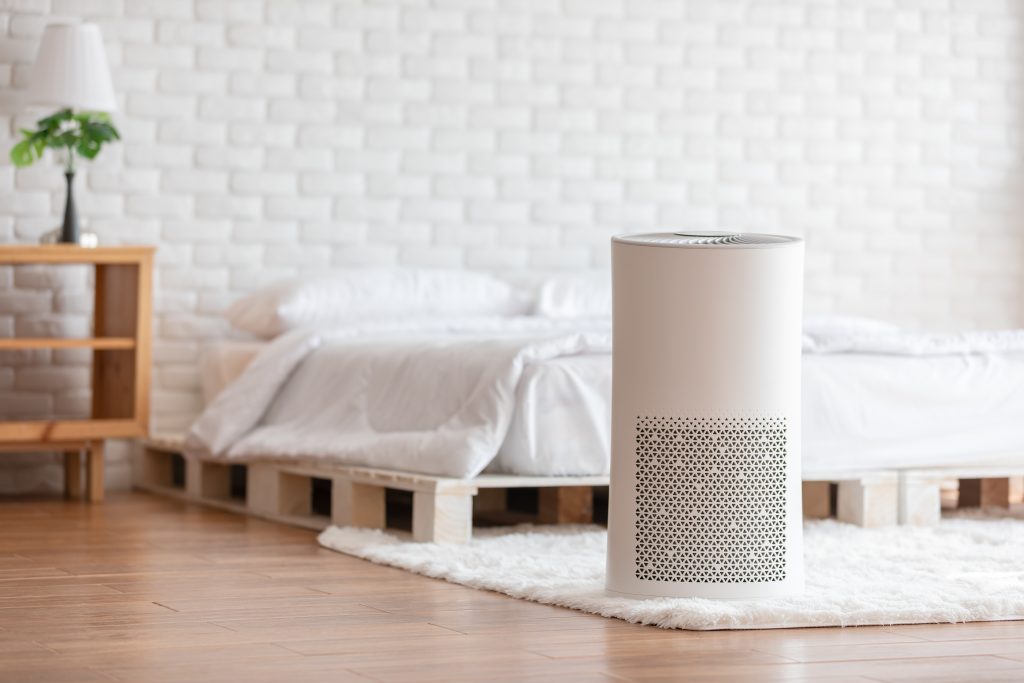
Dusting and vacuuming at least once a week can also make a big difference. The best dust busters and HEPA vacuums capture more dirt, dust and allergens than regular vacuums, which helps keep them from being redistributed throughout your house.
Overall, regular dusting is essential for keeping your home clean and healthy.
This story originally appeared on Don't Waste Your Money. Checkout Don't Waste Your Money for product reviews and other great ideas to save and make money.


